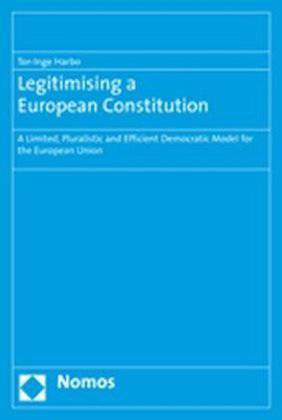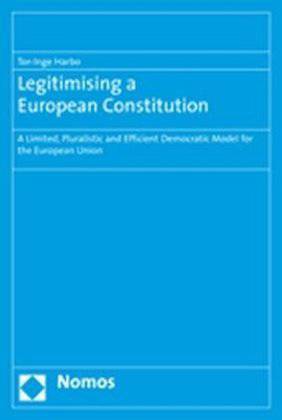
- Afhalen na 1 uur in een winkel met voorraad
- Gratis thuislevering in België vanaf € 30
- Ruim aanbod met 7 miljoen producten
- Afhalen na 1 uur in een winkel met voorraad
- Gratis thuislevering in België vanaf € 30
- Ruim aanbod met 7 miljoen producten
Zoeken
Legitimising a European Constitution
A Limited, Pluralistic and Efficient Democratic Model for the European Union
Tor-Inge Harbo
Paperback | Engels
€ 58,95
+ 117 punten
Omschrijving
The discontent with the European Union expressed in the referenda over the Maastricht Treaty in the beginning of the 1990s and more recently enunciated through the French and Dutch rejection of the European Constitutional Treaty has widely been perceived as being a consequence of the Union"s legitimacy deficit. There might be different reasons for this deficit. Whereas some argue that it is rooted in a lack of Humean legitimacy, i.e. a lack of utilitarian problem-solving capacity (output legitimacy), others hold that it is a consequence of the lack of Lockean legitimacy or popular consent or approval of the Union, i.e. a lack of democratic legitimacy (input legitimacy). It is the aim of this book to introduce a democratic model that bridges these two sources of legitimacy and which, bearing in mind the unique institutional, legal and societal qualities of the European Union, could provide a solid basis of legitimacy of the European Union in general and the European Constitutional Treaty in particular.
Dr. Tor-Inge Harbo holds a Norwegian law degree and a MA in European Studies. His PhD thesis was written under the supervision of Professor Dr. iur. Ulrich K. Preuss at the Free University of Berlin, Otto Suhr Institute of Political Studies, Department Legal Bases of Politics. He is currently working as a lecturer and researcher at the Faculty of Law, University of Oslo.
Dr. Tor-Inge Harbo holds a Norwegian law degree and a MA in European Studies. His PhD thesis was written under the supervision of Professor Dr. iur. Ulrich K. Preuss at the Free University of Berlin, Otto Suhr Institute of Political Studies, Department Legal Bases of Politics. He is currently working as a lecturer and researcher at the Faculty of Law, University of Oslo.
Specificaties
Betrokkenen
- Auteur(s):
- Uitgeverij:
Inhoud
- Aantal bladzijden:
- 290
- Taal:
- Engels
Eigenschappen
- Productcode (EAN):
- 9783832927028
- Uitvoering:
- Paperback
- Afmetingen:
- 157 mm x 228 mm
- Gewicht:
- 446 g

Alleen bij Standaard Boekhandel
+ 117 punten op je klantenkaart van Standaard Boekhandel
Beoordelingen
We publiceren alleen reviews die voldoen aan de voorwaarden voor reviews. Bekijk onze voorwaarden voor reviews.











